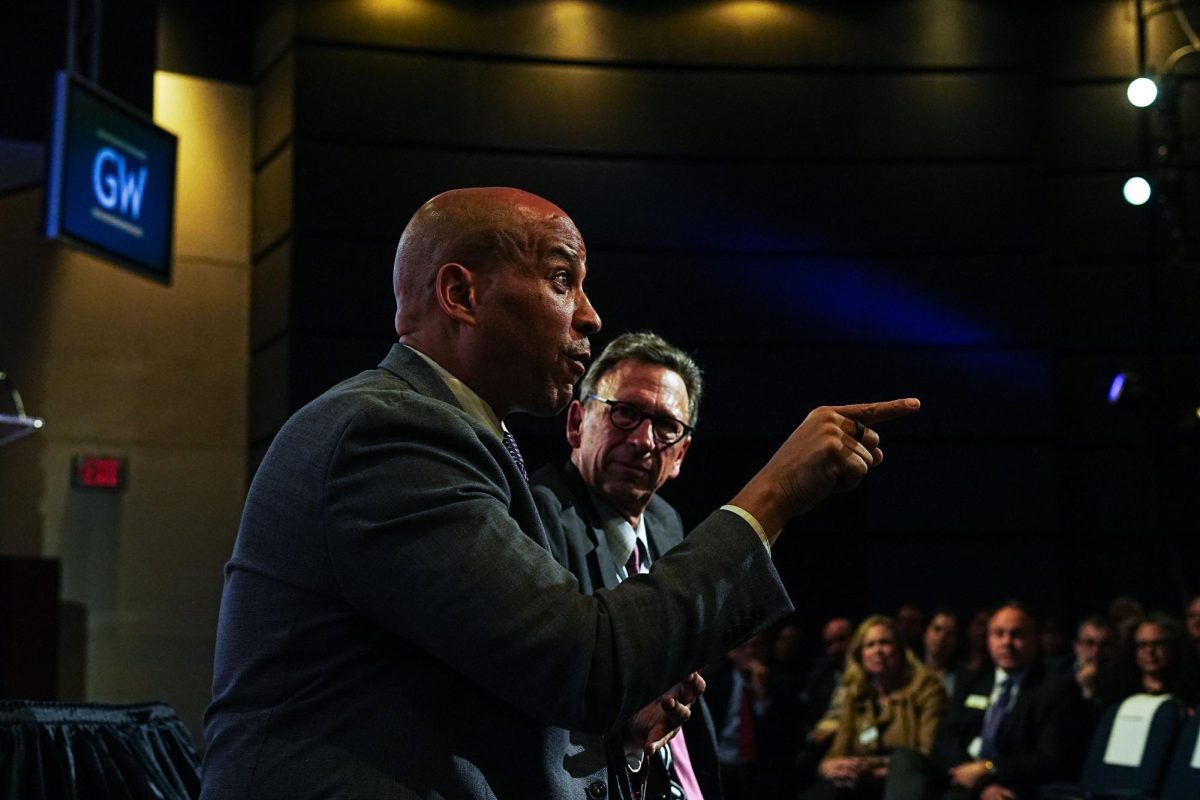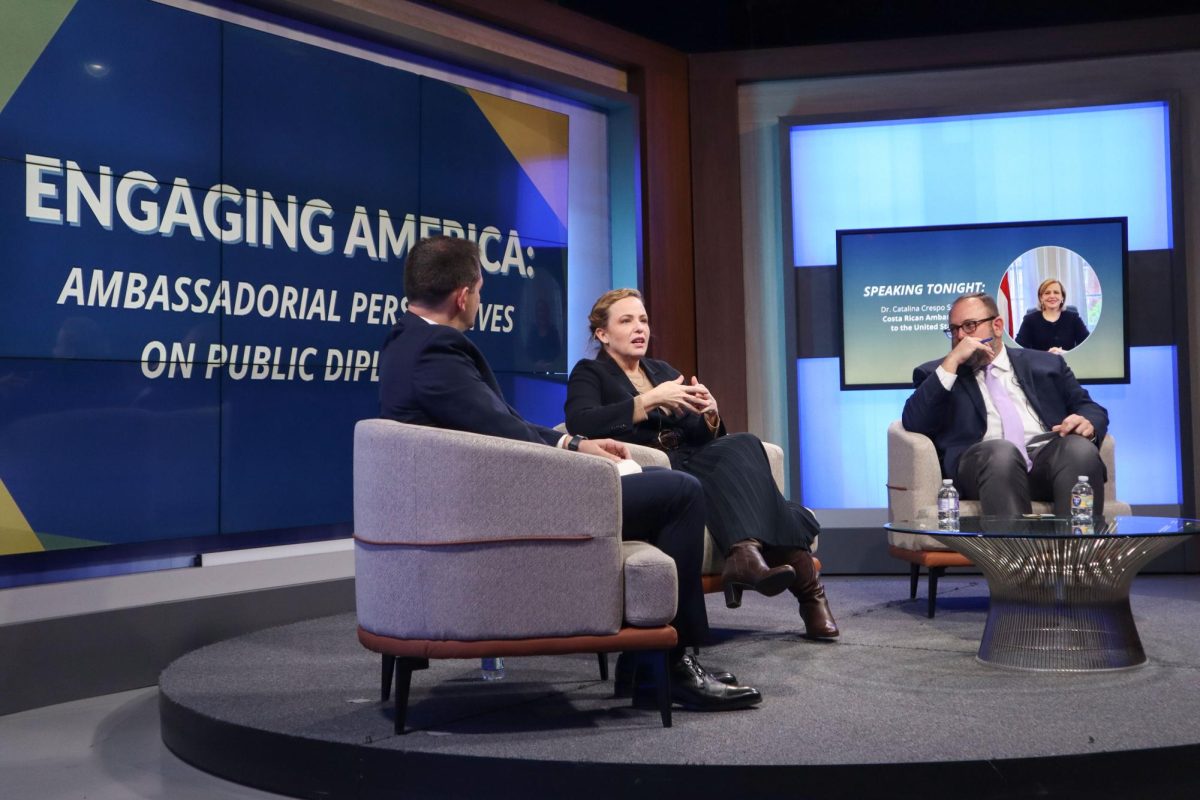Sen. Cory Booker (D-NJ) discussed overcoming political polarization in the United States at the School of Media and Public Affairs Thursday.
Booker, the former mayor of Newark, New Jersey and the 2016 Commencement speaker, said people who hold different beliefs need to work together to curb political polarization. The event, an installment of the Frank Sesno Newsmaker Conversation Series, was moderated by the former director for the SMPA and professor Frank Sesno and hosted by SMPA.
University President Ellen Granberg, who introduced Sesno and Booker, said GW must model the pursuit of the truth and “respectful disagreement” for students.
“GW has always been a place for thoughtful conversations, like the one we’re going to have tonight, and we are committed to continuing that legacy,” Granberg said.
Booker said some of the most rewarding moments in his political career were the result of collaboration with someone who held beliefs that he disagreed with. He said he recalls having dinner with Sen. Ted Cruz (R-TX) and going to Sen. Jim Inhofe’s (R-OK) Bible study, which led to Inhofe cosponsoring his amendment to the Every Child Achieves Act in 2015 to better support foster and unhoused children.
“That would have never happened if I did not get over myself, go to another colleague’s inner sanctum, sit down with him and see his humanity,” Booker said.
Booker said heightened political polarization in the U.S. stops not just politicians from making important progress but all Americans. He said his “personal journey” includes leading himself away from a more individualistic mindset and instead seeing the country as a community.
Booker said his personal journey has heavily shaped his political journey, including the “trauma” he experienced from trying to stop a boy who was shot from bleeding to death while he was living in public housing projects in Newark in 2004, shortly before becoming mayor. Booker said the experience made him angry because he felt that no one cared about communities like his own. He said the experience taught him to “stay faithful” — the two words the victim’s mother repeated to Booker following the incident.
“I still lean on these two words,” Booker said. “And it has nothing to do with religion but everything to do with how other people before us got over wretchedness and hate and pain and hurt when they wanted to give up.”
Booker said his call Tuesday for Sen. Bob Menendez (D-NJ) to resign was one of the more “gut-wrenching” things he has done because of the close relationship the two have formed working together as senators from New Jersey since Booker took office in 2013. Menendez and his wife, Nadine, pleaded not guilty to bribery charges Wednesday.
“You’re going to stumble, you’re going to fall flat on your face, you’re going to be crippled with shame from doing something,” Booker said. “What I’ve said to my colleagues is that you can hate the sin, but don’t hate the sinner.”
When asked to comment on the Republican primary for the 2024 presidential election, Booker said former New Jersey Gov. Chris Christie (R) is a “political talent” and Sen. Tim Scott (R-SC) has “a lot of possibility.” Booker, who ran for president in 2020, said it was likely that he would run for president again but that he wasn’t sure when.
“I can’t tell you what I’m going to do in 2028,” Booker said.
He said Democrats have the best field of talent he has seen in his lifetime and that there are a lot of “rising stars” in the party. Booker said an ideal presidential candidate should not just lead and manage the federal government but unite the nation.
“I want someone who can inspire us to understand the lines that divide us are nowhere near as strong as the ties that bind us,” Booker said. “I want someone to inspire our nation again, to believe that we belong to each other, that we have a calling to create a more beloved community in this nation.”











